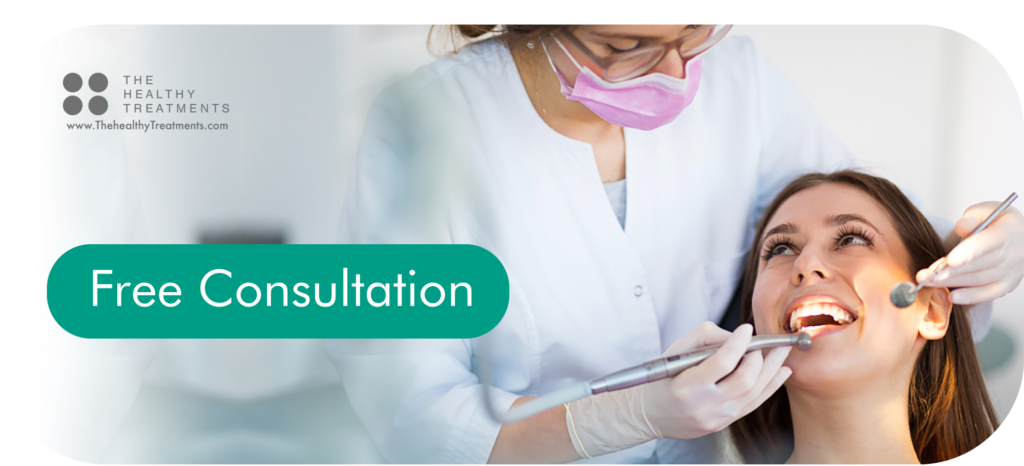Veneers for Sensitive Teeth: A Comprehensive Guide Find the Right...
Leer Más


What is Buccal fat removal?
Buccal fat removal or Bichectomy is a cosmetic procedure that surgically removes fat from the sides of the face and cheeks. The goal is to help create a more contoured facial shape, reduce fullness in the cheeks, and enhance the angle of the jawline. It’s often done for aesthetic purposes, but it can also be helpful for people who suffer from gaunt or sunken-in cheeks due to extreme weight loss or aging.
During the procedure, a small incision is made in the mouth and then fat cells are carefully extracted from the cheek area. The incisions are so small that no stitches are required, and the recovery time for buccal fat removal typically lasts between one to two weeks. Moreover, results can be seen shortly after surgery, though full effects will take up to 3 months to become visible.
How much does buccal fat removal cost?
The cost of buccal fat removal can vary depending on the geographic area, the experience of the surgeon, and other factors. Generally, it can cost anywhere from a few hundred to several thousand dollars. Be sure to ask for an itemized list of fees when you meet with your doctor. This will help you understand all costs associated with the surgery so you’re not surprised by any additional charges. While it can be costly, buccal fat removal is considered a very safe and effective procedure. It’s important to choose a board-certified plastic surgeon or dermatologist with plenty of experience performing buccal fat removal. Ask for before-and-after photos of patients the doctor has performed this operation on. This will give you an idea of what your results could potentially look like. You should also be sure to follow all preoperative and postoperative instructions from your doctor as closely as possible in order to reduce risks of complications and achieve optimal results from the surgery.
What are the benefits of buccal fat removal?
Buccal fat removal can give you a slimmer, more angular appearance by removing unwanted fat located below the cheekbones. The procedure can provide permanent slimming of the face, reducing the appearance of any chubby cheeks. It may also make your jawline look sharper, creating a more defined and contoured facial outline. In some cases, buccal fat removal can even thin out other hard-to-manage areas around the lips or eyes.
The procedure is a great option for those who want to look more youthful without resorting to artificial fillers. Other benefits may include improved skin texture and tone due to less fat buildup, as well as enhanced facial expressions due to the reduction of excessive fat. However, it’s important to note that buccal fat removal won’t help with wrinkles, sagging skin, or other signs of aging – for those areas, you may need a more involved anti-aging treatment.
Are there any permanent risks involved with this procedure?
Yes, there are some permanent risks involved with buccal fat removal that you should consider before opting for the procedure. These can include persistent nerve damage, numbness in the face, asymmetry of facial features and excessive scarring. It’s important to discuss all possible risks with your doctor before making any decisions about the surgery so that you can weigh the possible benefits and potential costs associated with it.
Are there any alternatives to buccal surgery?
Whether you’re undergoing buccal surgery or any other type of medical procedure, it’s important to understand all the available options. Ask your surgeon if there are any alternatives to buccal surgery that could still provide the desired outcome. This can help you ensure that you make an informed decision and get the best possible treatment for your condition. In certain cases, surgery may not be the only solution. Your surgeon may suggest nonsurgical alternatives such as physical therapy changes in diet and nutrition or home remedies. Your healthcare provider can help you explore all of these possibilities before undergoing buccal surgery. Depending on your condition, some of these alternatives may provide comparable results to traditional surgery while having fewer risks and side effects.
We’ve compiled a list of essential questions you should ask your Thehealthytreatments Board Certified Surgeon before the procedure. Find out here!
Conclusion
Buccal surgery is a minimally invasive procedure that alters the mucosal lining of the mouth. Buccal surgery is also considered to be a safe and effective procedure. The ultimate goal of this procedure is to reduce the size of salivary glands, a method of improving the aesthetic appearance. The procedure lasts approximately two hours relying on the use of local anesthesia and chemical peeling agents to minimize scarring. Thehealthytreatments patients in 2022 experienced Limited post-operative pain, and favorable outcome within two weeks of the operation. However, when considering this treatment, it is important to understand that it is not without risks. Because of this, adequate aftercare is necessary in order to ensure a successful outcome.
THT | TheHealthyTreatments
Veneers for Sensitive Teeth: A Comprehensive Guide Find the Right...
Leer MásWhat would you choose – a cheaper option or safety?...
Leer Más¿Cómo puedo reducir mi riesgo de cáncer? DR. BANSAL Algunas...
Leer MásEspecialistas Agendar Consulta Laboratorios Toma de Muestras Plastic Surgery Procedures...
Leer Más